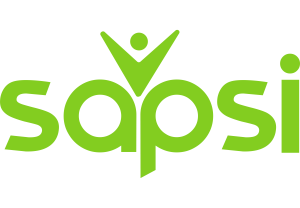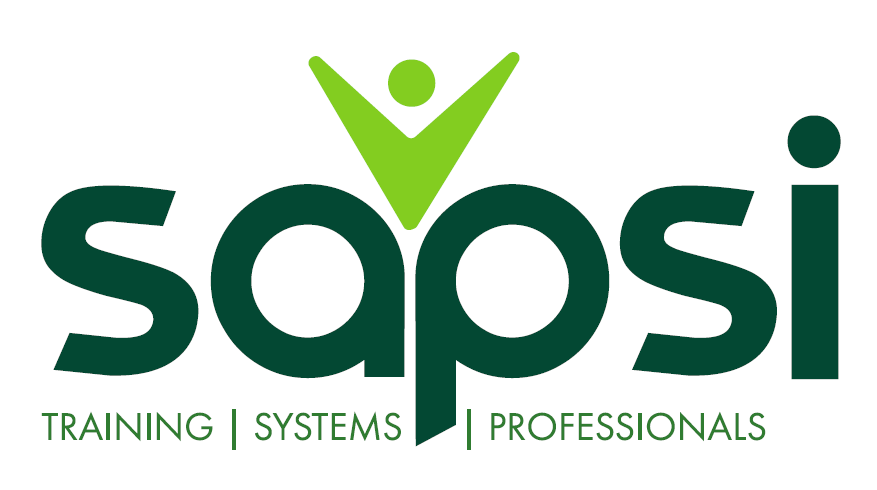SAPSI Academy
Courses
Skip available courses
Available courses
- Teacher: John Mosweu

This course equips leaders and team members with the skills and strategies needed to foster resilience, manage conflict, and build a supportive, high-performing team culture. Through practical tools, real-world case studies, and reflective activities, you'll learn how to strengthen collaboration, navigate change, and promote emotional well-being. All essential elements for a resilient and successful team.
- Teacher: Treasure Masinga
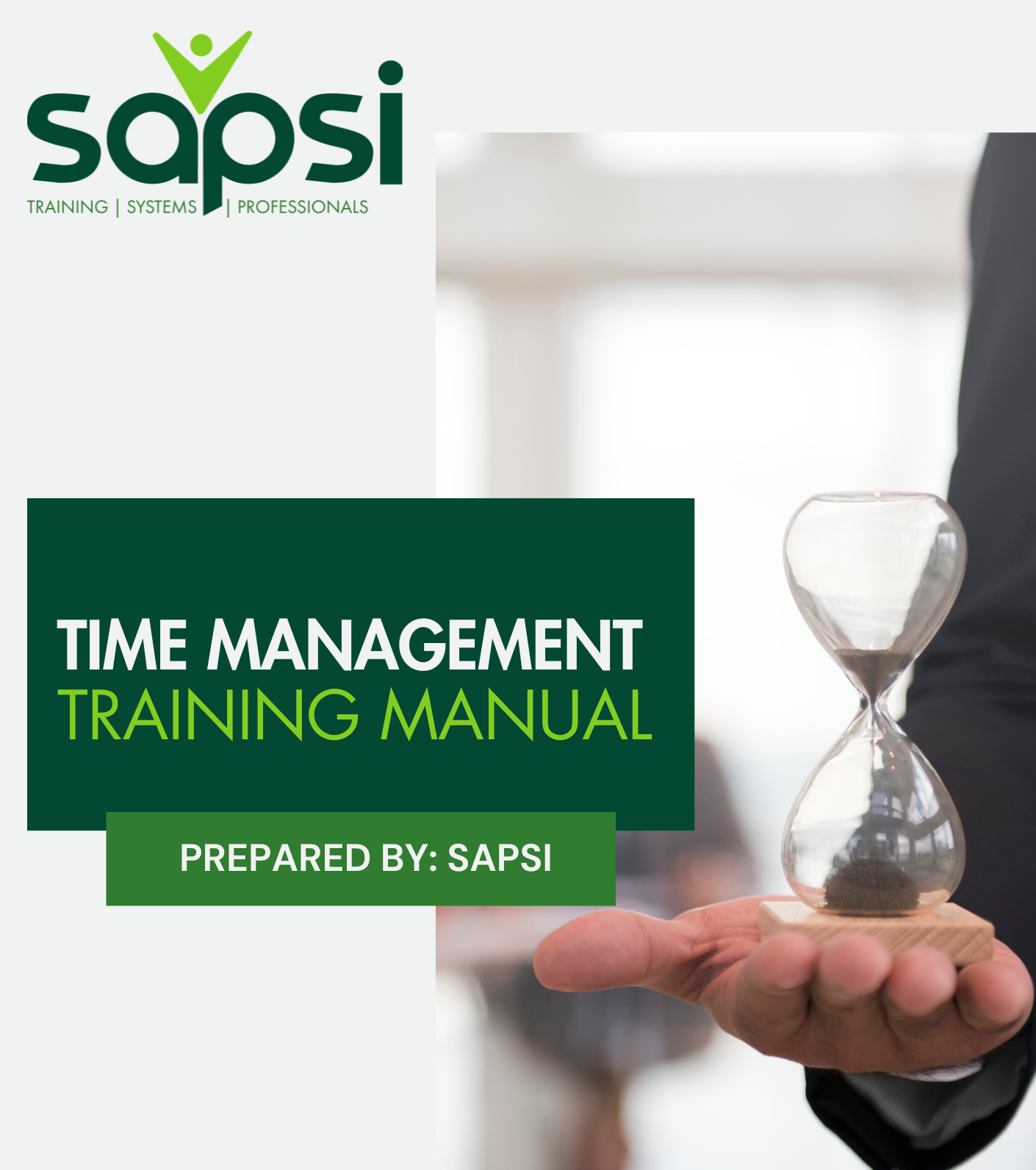
Effective time management is a vital skill that empowers individuals to take control of their schedules, maximize productivity, and achieve both personal and professional goals.
By managing time efficiently, individuals can reduce stress, avoid last-minute pressures, and create a healthier balance between work and personal life.
This course is designed to equip students with practical tools, proven frameworks, and essential techniques to develop strong time management habits.
Throughout the program, students will learn how to set clear goals, prioritize tasks, minimize procrastination, and handle distractions effectively.
By applying these skills, students will not only improve their productivity but also enhance their decision-making, build greater confidence, and perform consistently under pressure—skills that are invaluable for academic success, career advancement, and personal growth.
- Teacher: Mikaela Willemse

The Client Satisfaction Course is designed to equip employees with the skills and strategies needed to deliver outstanding customer service. Through seven structured modules, participants will learn effective communication techniques, handling inquiries and complaints, time management, customer relationship management (CRM), and continuous service improvement. This course emphasises practical applications, real-world scenarios, and actionable strategies to enhance customer interactions, increase satisfaction, and build long-term loyalty. By the end of the course, participants will be able to confidently manage customer needs, resolve conflicts professionally, and contribute to a strong customer-focused business culture.
- Teacher: Mikaela Willemse

The purpose of this qualification is to prepare a learner to function as a Municipal Finance Manager.
A Municipal Finance Manager leads, manages, implements, oversees, reports, and takes accountability and responsibility for the budget, financial and general matters of the Municipal Finance Management Act (MFMA) and supporting legislations thereof. A competent learner shall demonstrate among others the following attributes: honesty, punctuality, initiative, critical analysis, integrity, ethical, etc.
A qualified learner will be able to:
- Develop financial management policies in accordance with applicable legislation.
- Contribute towards good corporate governance and risk management.
- Uphold the audit and assurance processes.
- Analyse the municipal plans and provide strategic advice and direction on the allocation of the budget to planned service delivery priorities.
- Lead and manage financial and performance reporting processes to support accountability.
- Oversee the effective and efficient preparation and implementation of the municipality's annual budget.
- Oversee the supply chain management process.
Rationale:
The Municipal Finance Management Act (MFMA) requires the National Treasury (NT) to assist municipalities in building their capacity for efficient, effective, and transparent financial management. The municipal service delivery systems recognise the role played by competent workforce. This requires the Municipal Financial Managers to have the required competencies as prescribed in terms of the Constitution of South Africa and relevant local government and inter-governmental relations' legislation that will enable them to operate effectively and efficiently in a professional manner.
The qualification seeks to provide Municipal Finance practitioners with a foundation for professional certification in municipal finance. To this end, the qualification systematically combines the knowledge, practical skills and workplace experience required in a professional certification process. The focus is on the development of institutional leadership capability premised on professional certification. The area of work practice and, therefore, the skills demand have been informed by the legislative mandate analysis.
This qualification is aimed at developing Municipal Finance Managers who can provide strategic and operational leadership management in the municipal finance management cycle, including but not limited to: budgeting, planning, accounting, financial analysis, financial reporting, cash management, debt and liability management, supply chain management, financial management, and fiscal oversight within municipalities to improve financial management. The qualification is for learners who are holding financial, accounting and/ or economics related bachelor's degree, and are currently employed within various municipalities. Learners without a bachelor's degree in the above-mentioned fields shall be required to undertake the NQF level 6 certificate in the public finance to gain entry.
- Teacher: John Mosweu

The End User Computing Advanced Course is designed for learners who have already mastered the fundamentals of computer applications and are ready to advance their digital competencies to a higher level. This course builds on core computing skills and equips learners with advanced knowledge and practical expertise needed to operate effectively in professional, academic, and business environments.
Through a structured curriculum, participants will explore advanced functionalities of word processing, spreadsheets, databases, and presentation software, while also developing skills in data analysis, system integration, and information management. Emphasis is placed on problem-solving, efficiency, and the ability to adapt digital tools to meet diverse workplace needs.
By completing this course, learners will:
-
Apply advanced techniques in productivity software to streamline tasks and projects.
-
Use data management and analysis tools to support decision-making.
-
Develop professional-quality documents, reports, and presentations.
-
Strengthen their digital literacy to operate confidently in technology-driven environments.
This course is accredited and aligned with workplace standards, ensuring that learners gain both recognized certification and practical skills that can be directly applied in the world of work. It is ideal for individuals seeking to enhance their career opportunities, improve efficiency, and demonstrate advanced end user computing capabilities.
- Teacher: John Mosweu

The Intermediate End User Computing (EUC) course builds on foundational digital skills and is designed to enhance learners’ ability to use computers and applications with greater efficiency and confidence. This course focuses on developing more advanced techniques and problem-solving strategies, preparing learners to apply computing skills effectively in academic, professional, and business environments.
Key focus areas include:
-
Advanced word processing, spreadsheet, and presentation functions
-
Data organization, formatting, and analysis
-
Effective use of the internet and email for productivity
-
Improved file, folder, and system management
-
Practical exercises that strengthen real-world application of computing skills
By completing this course, learners will not only deepen their technical proficiency but also gain the ability to use digital tools more strategically to improve productivity, accuracy, and communication. The Intermediate EUC course ensures that learners are well-prepared for more complex computing tasks and future advanced studies in end user computing.
- Teacher: John Mosweu
End User Basic Computing is an introductory course designed to equip individuals with the essential computer skills needed to effectively use digital tools in everyday life, education, and the workplace. This course is ideal for beginners with little to no prior experience in computing.
Throughout the course, learners will become familiar with the fundamentals of computer hardware and software, learn how to navigate operating systems (such as Windows or macOS), and gain hands-on experience with common productivity applications like word processors, spreadsheets, and presentation tools. The course also covers basic internet usage, email communication, file management, and essential safety practices for working online.
By the end of this course, students will be able to confidently perform a wide range of computing tasks, solve common technical issues, and apply their skills to support both personal and professional goals. The course lays a strong foundation for further studies in information technology or more specialized computer training.
- Teacher: John Mosweu
- Teacher: Leah Van Lelyveld

- Teacher: Kerry de Jager

The purpose of this qualification is to prepare a learner to operate as a Project Manager. A Project Manager applies knowledge of project management to achieve project objectives in a specific field of application. A qualified learner will be able to:
- Initiate a project to address specific project objectives.
- Plan and prepare the delivery of a project.
- Execute and control the delivery of a project management plan.
- Manage the project close out process.
The qualification establishes a national standard for the training of fully qualified Project Managers and is closely aligned with international best practice.
- Teacher: John Mosweu
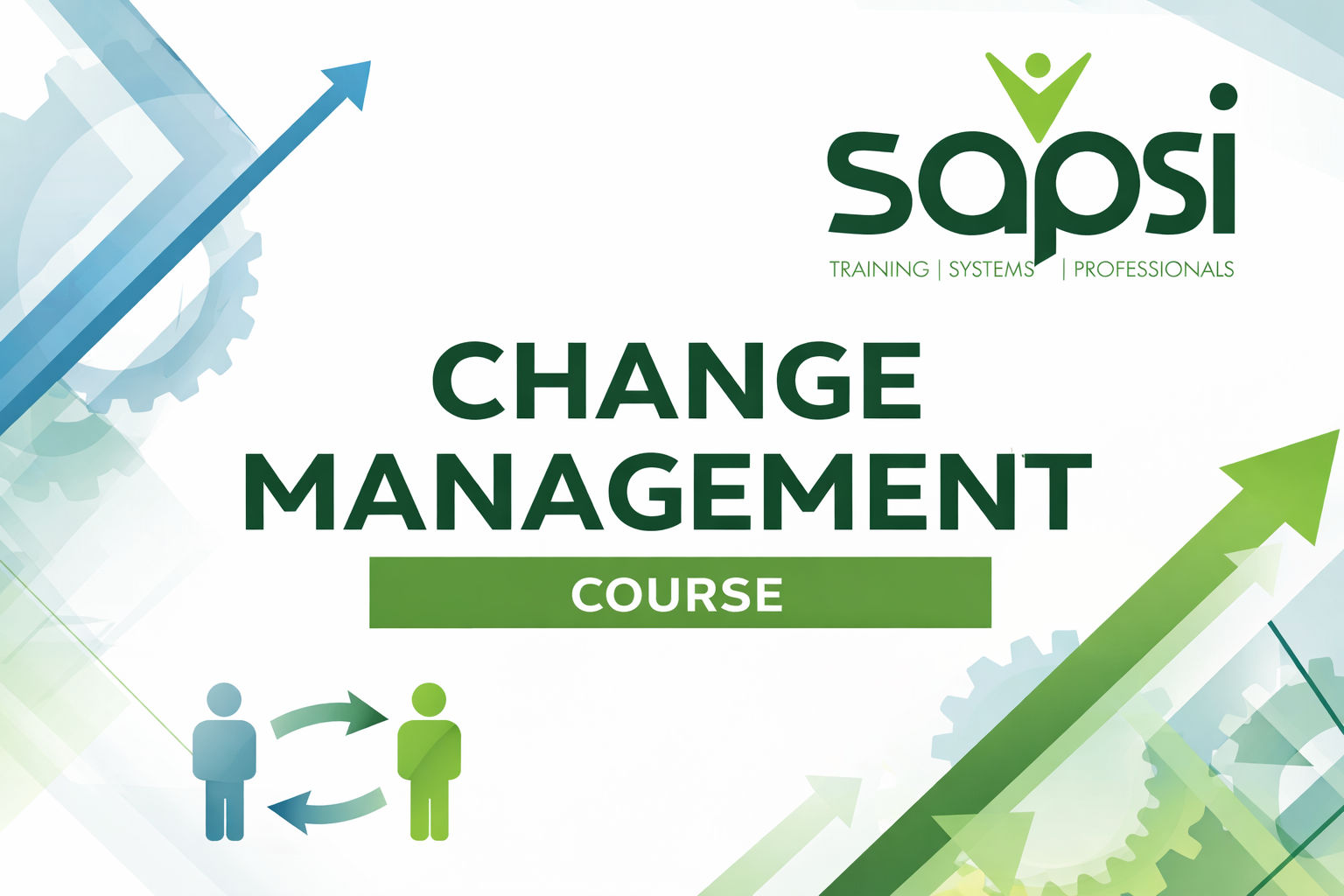
Municipal finance operates in an environment of continuous change driven by legislative reforms, system upgrades, audit requirements, service delivery demands, and evolving governance standards. Effective change management is therefore critical to ensure that financial reforms, process improvements, and system implementations are successfully adopted and sustained within the municipality.
This Change Management course is designed to equip municipal finance officials, managers, and system users with the knowledge and practical tools required to manage change in a structured, controlled, and people-centred manner. The focus is on aligning financial processes, systems, and behaviours with municipal objectives while maintaining compliance with applicable legislation such as the MFMA, GRAP, and Treasury regulations.
Participants will gain an understanding of how change impacts financial operations including budgeting, revenue management, expenditure control, reporting, and financial governance. The course emphasises communication, stakeholder engagement, risk mitigation, and user adoption to minimise resistance and ensure continuity of financial services during periods of change.
By the end of this programme, delegates will be better positioned to lead, support, and sustain financial change initiatives that improve efficiency, accountability, and service delivery outcomes within the municipal environment.
- Teacher: John Mosweu
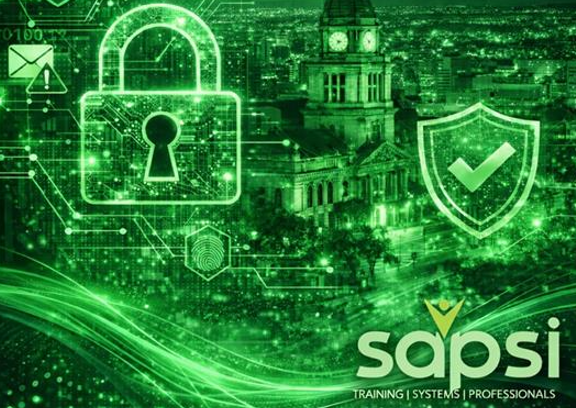
The purpose of this Cyber Security Awareness Training Programme is to reduce human-related cyber risk within municipalities. While technology such as Sophos provides strong protection, employees remain the first and most important line of defence. This programme equips participants with the knowledge and behavioural skills required to prevent, identify, and respond to cyber threats in their daily work.
- Teacher: John Mosweu
